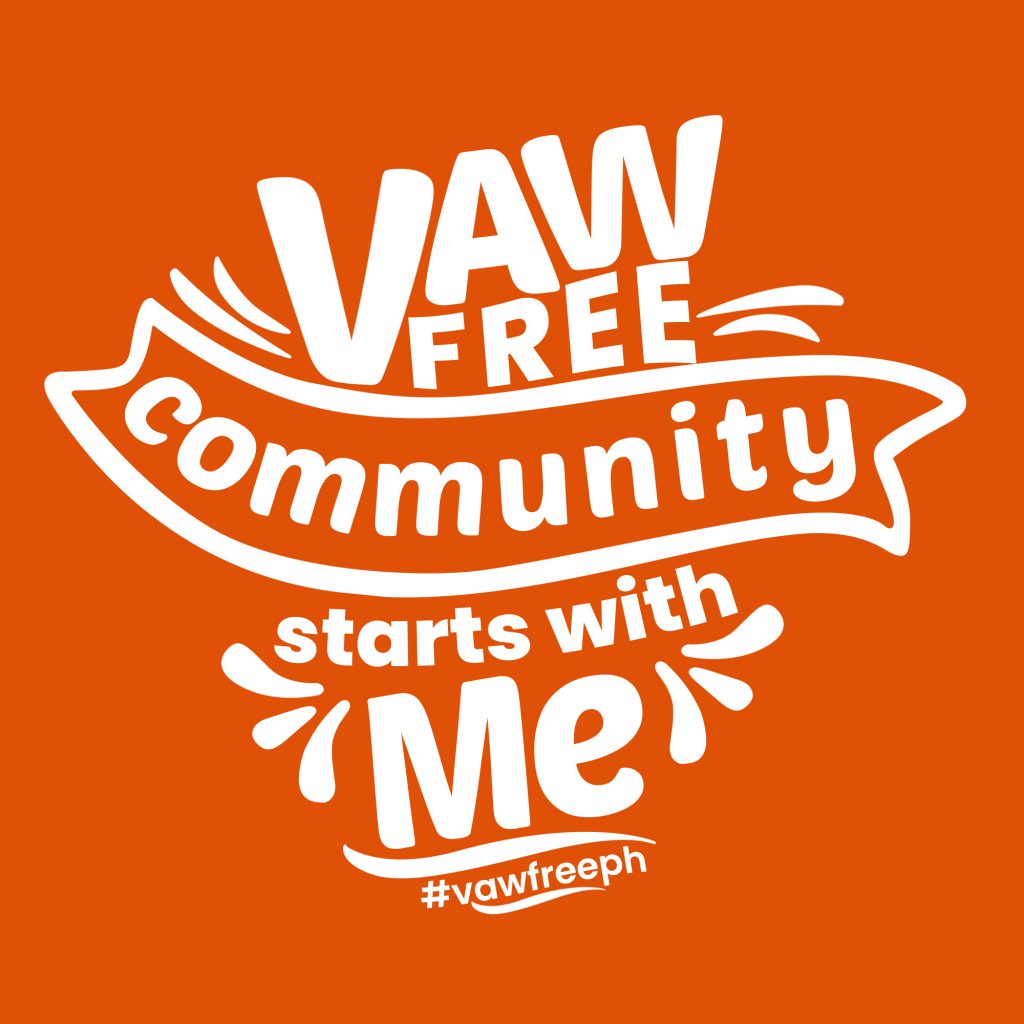Fighting the virus called violence: PCW Message for the 2020 18-Day Campaign to End VAW

Aside from COVID-19, we need to combat a scourge that has long afflicted our society: Violence Against Women (VAW).
If it were a virus, VAW can infect not only the woman, but also her family, and community. It will also negatively affect her education, her career, her wellness, her future, her whole being. Its manifestations – bruises, words of abuse, catcalling, and many others – become more apparent, more destructive, and more persistent if these go untreated. And sometimes, when this “virus” lives long enough, the society becomes immune to it that we no longer feel the need for antibodies or a cure.
Even before the pandemic, global estimates show that 1 in 3 women experienced physical or sexual violence mostly by an intimate partner. Domestic violence, rape, sexual harassment in different spaces, acts of lasciviousness, voyeurism, trafficking in persons, and other forms of VAW affect women and girls around the world.
But with the threat of COVID-19, the threats of VAW have been exacerbated. During this health crisis, reports show an increase in calls to domestic violence helplines in many countries. The Philippine Commission on Women, through the Inter-Agency Council on Violence Against Women Secretariat, received VAW complaints/reports via email, phone, walk-in and our social media accounts. The PCW data show that there has been an increase in the number of inquiries received since March, the start of the community quarantine measures compared to those received from January to March of this year.
Meanwhile, data from the Philippine National Police show that there has been a drop in the number of Gender-based violence cases. From March 15 (start of the Metro Manila lockdown) to October 31, 2020, 14,721 GBV cases were reported, a number lower than the 26,921 cases during the same period last year. But this may not be the reality on the ground. The decrease in reported cases may be attributed to the restricted movement in the communities, suspension of public transportation, victims being locked down with their perpetrators, lack of communication channels, and lack of information on where/how to report.
Thus, there is no reason to put our guards down. Now, more than ever, we have to advocate against all forms of Violence Against Women. With many staying at home, tension caused by anxiety, threat to health and security, economic losses, unemployment, can brew a perfect storm and put women at risk. Aside from domestic violence, one alarming threat that was aggravated during this health crisis is online sexual harassment, with many going virtual. We have received reports of Facebook groups sharing lewd content, memes on rape, comments with sexual undertones, and many others. Aside from this, Gender-Based Sexual Harassment (GBSH) also exists in the streets and public spaces even with the quarantine measures implemented.
But unlike the COVID-19 pandemic where the fate of the human race depends on scientific breakthroughs, the antidote to VAW is all of us — unitedly taking our part in keeping our communities VAW-free. The barangay, which plays a role as first responders to VAW/GBV cases, strengthens its capacity to help VAW survivors, government agencies continue to improve and provide services to clients, the academe ensures that students, faculty, and employees are safe from VAW by instilling knowledge on the same as well as providing mechanisms, and NGO/private sectors help address the issue in their own collaborative ways.
But at the core of a VAW-free community is gender equality. Men treat women as their equals, respect them, and inspire one another to create safe spaces for all genders. Women and girls know and stand up for their rights and help those whose rights have been trampled upon.
Now, more than ever, let us inject respect, equality, positive masculinity, and inclusiveness in our society where VAW cannot thrive. Now, more than ever, let us strengthen our call for a VAW-free Philippines where women, men, and all genders challenge deep-seated stereotypes, trump machismo, and shake the patriarchal system. Now, more than ever, let us act collectively against the further spread of the scourge of VAW throughout our communities, our nation, the whole world, from our generation to the next. Let us unite for a #VAWfreePH.

